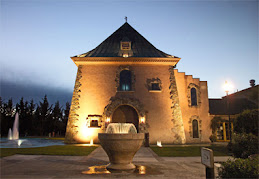I should probably start with an overview of the Chicago Climate Exchange. CCX began in 2000 as a grant to Dr. Richard Sandor, an economist at the Kellogg School of Management, to assess the feasibility of a cap and trade market in the U.S. to reduce greenhouse gas emissions. CCX trading began in 2003 with 13 charter members that sign legally binding agreements to reduce greenhouse gas emissions. Organizations that reduce more than the requirement may trade credits for money to those organizations that do not. Today, 11% of Fortune 100 companies participate, and similar carbon trading market has also been launched in Europe.
Given Ms. Lovin’s belief that a change in government policy is not needed to spur creation of natural markets, I was quite surprised to discover that the panelists thought just the opposite. According to the Net Impact panelists, the sole emergence of the CCX is because companies are anticipating government regulation. They believe that joining a voluntary carbon market will give them a competitive edge once regulation is created. For example, 25% of the largest U.S. coal emitters participate in the CCX. Megan Morgan quoted a coal industry CEO as saying his company joined CCX because, “We want to have a seat at the table rather than being eaten for lunch.” Companies are joining the CCX because:
- Regulation of carbon is increasingly becoming part of a dialogue for U.S. politicians. If or when regulation is passed, participants feel they will have a competitive edge over peers who have not yet taken steps to reduce their carbon emissions.
- Europe has begun to tax polluters, and many U.S. executives prefer a cap and trade system that would financially reward companies that find innovative ways to cut carbon emissions. Voluntarily joining such a system is a way of demonstrating support for such a model and of influencing future legislation.
- Being unprepared once carbon regulation is passed will impact return to shareholders.
- The initial audit companies participate in after joining CCX causes many companies to identify energy saving opportunities that save them money.







